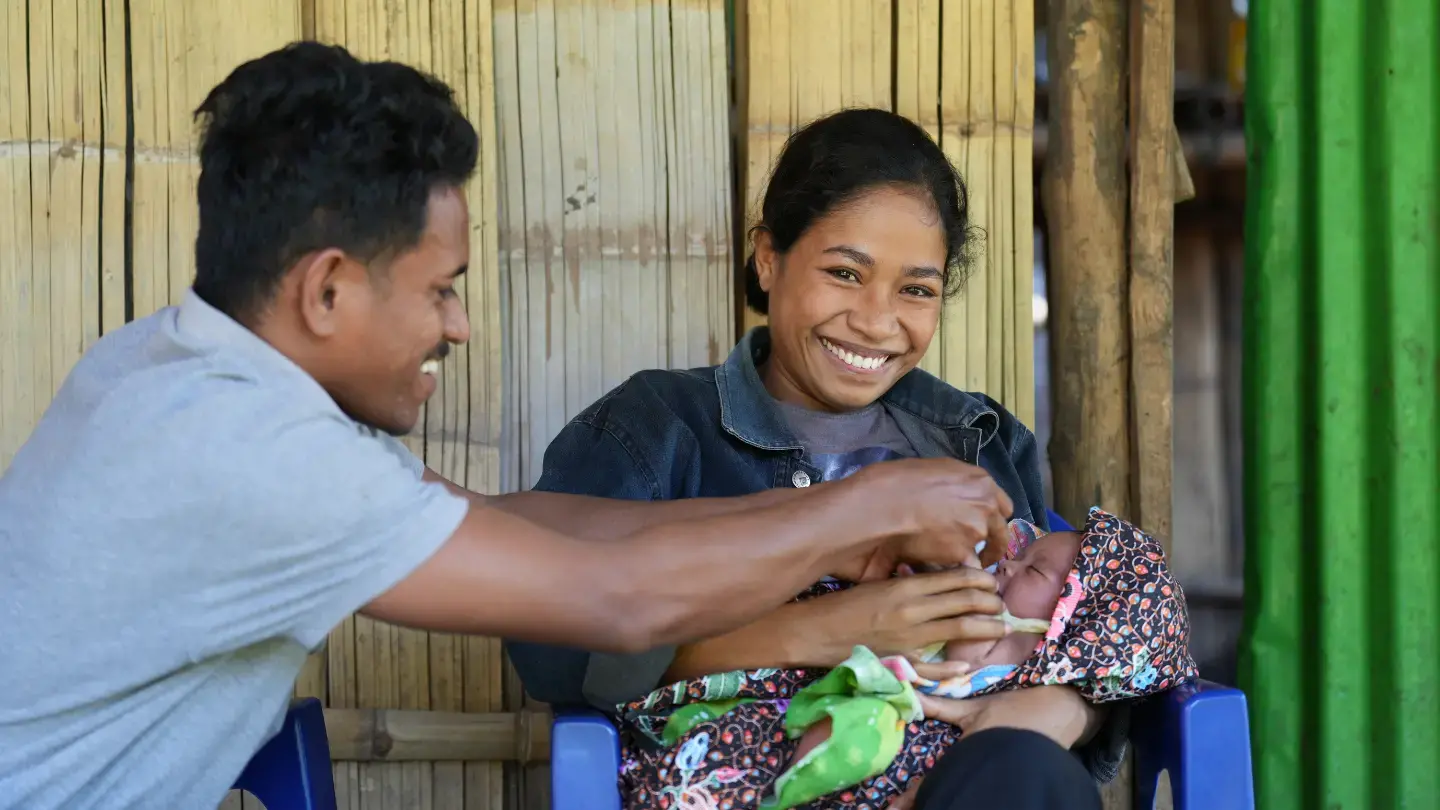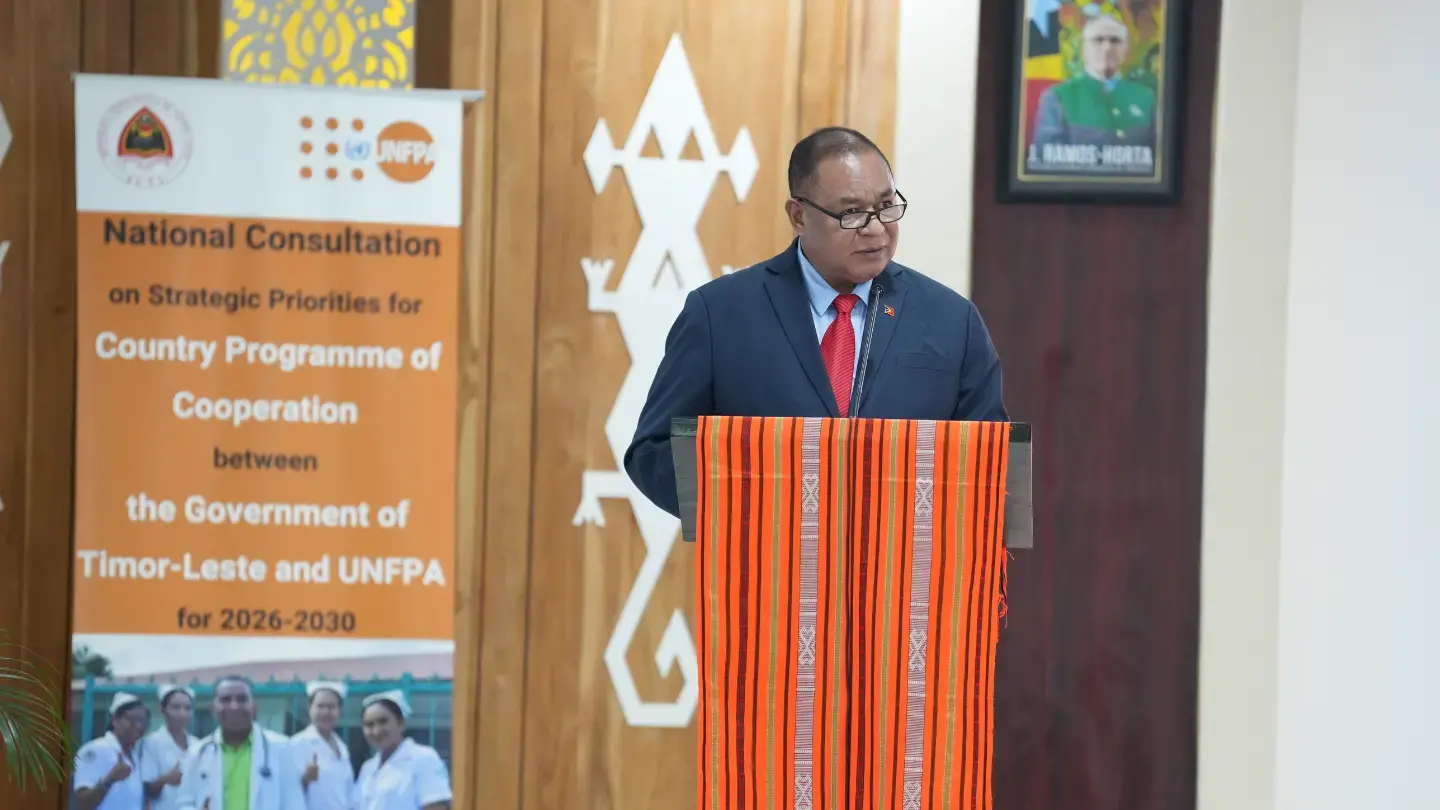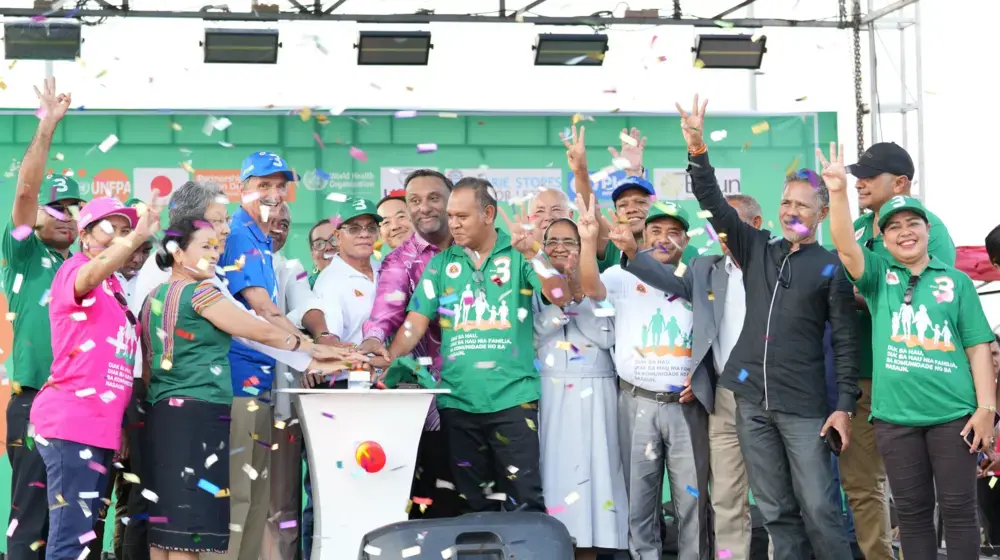This week the IV Ministerial Meeting on Equality of the Community of Portuguese Speaking Countries (CPLP) is taking place in Dili. For the United Nations Population Fund, UNFPA, in Timor-Leste, it provides an opportunity to underscore the importance of sexual and reproductive health and rights as a key driver of gender equality and a pillar of the 2030 Sustainable Development Agenda.
Increased access to family planning and reproductive health services supports women's social and economic well-being by enabling them and their families to choose the number and spacing of their children. Women who are able to delay childbearing are more likely to meet their educational goals, obtain productive employment, increase household income, and thus help reduce extreme poverty. Better birth spacing reduces the incidence of low birth weight and poor maternal nutrition. Family planning results in more wealth and less hunger.
For teenage girls, early pregnancy often brings an end to education-girls drop out of school due to unintended pregnancy or to help care for younger siblings. A 2010 study found that 99% of adolescent mothers in Timor-Leste abandoned their education. By increasing access to family planning, supported by access to vital information in a timely way, teenage girls would be more likely to stay in school, and in turn, send their own daughters to school.
Using family planning empowers women, and by extension, their families, society and nation.
When women are empowered and are equal decision-makers in their families, they spend more resources on their children's nutrition, healthcare and education. Involving men in family planning can lead to changes in gender norms.
Empowering women in many ways, including their ability to achieve their desired family size, is the most important driver of modern development efforts. We have seen that time and again in country after country; it can happen in Timor-Leste too.
Birth spacing through family planning reduces child mortality. Children born three to five years apart are two-and-a-half times more likely to survive than children born two years apart.
Universal access to reproductive health, including family planning, is a key component of Sustainable Development Goal 3-Ensure healthy lives and promote well-being for all, at all ages.
UNFPA Supplies is UNFPA's flagship programme that helps countries build strong health systems and widen access to a reliable supply of contraceptives and lifesaving medicines for maternal health. UNFPA has been active in Timor-Leste since 1999 and UNFPA Supplies has supported commodity procurement since 2013.
Portugal has long been a firm supporter of UNFPA and a firm believer in people's right to decide for themselves whether and when to have children, and to determine the size of their own families. At the 2012 July Summit on Family Planning, the Portuguese Government pledged its commitment to a global effort to provide an additional 120 million women in the world's poorest countries with access to life-saving family planning information, services and supplies by 2020. These supplies have the power to change lives and to save them.
Quality contraceptives empower couples to plan their families; basic inexpensive medications keep women from bleeding to death during childbirth; and condoms protect people from HIV and sexually transmitted infections and unintended pregnancies.
In 2015 alone, UNFPA helped 23.2 million women in more than 100 countries receive access to modern contraceptives and reproductive health services. The contraceptives provided in 2015 had potential to avert an estimated:
- 26,000 maternal deaths
- 9 million unintended pregnancies
- 2.8 million unsafe abortions and
- 170,000 child deaths.
With UNFPA Supplies' partnership, the Government of Timor-Leste is providing a brighter future for poor and marginalized women and adolescents. In Timor-Leste, commodities procured by UNFPA have the potential over the next two years to reach 125,000 users and avert an estimated:
- 2,500 maternal deaths
- 95,00 unintended pregnancies
- 26,000 unsafe abortions and
- Over 1,000 child deaths.
Fifty years of global investment in family planning programs have contributed to strong collaboration among international agencies, governmental ministries, multinational organizations and local community groups.
In 2016, the world shifted its focus from the 2015 Millennium Development Goals toward the 2030 agenda underpinned by the 17 Sustainable Development Goals.
As this next generation of goals expands the focus from social and human development to also include economic and environmental objectives, we should not underestimate the positive ripple effects of family planning across all areas - with the lives, well-being, rights and equality of women and girls at the centre.




